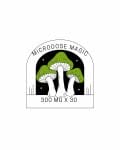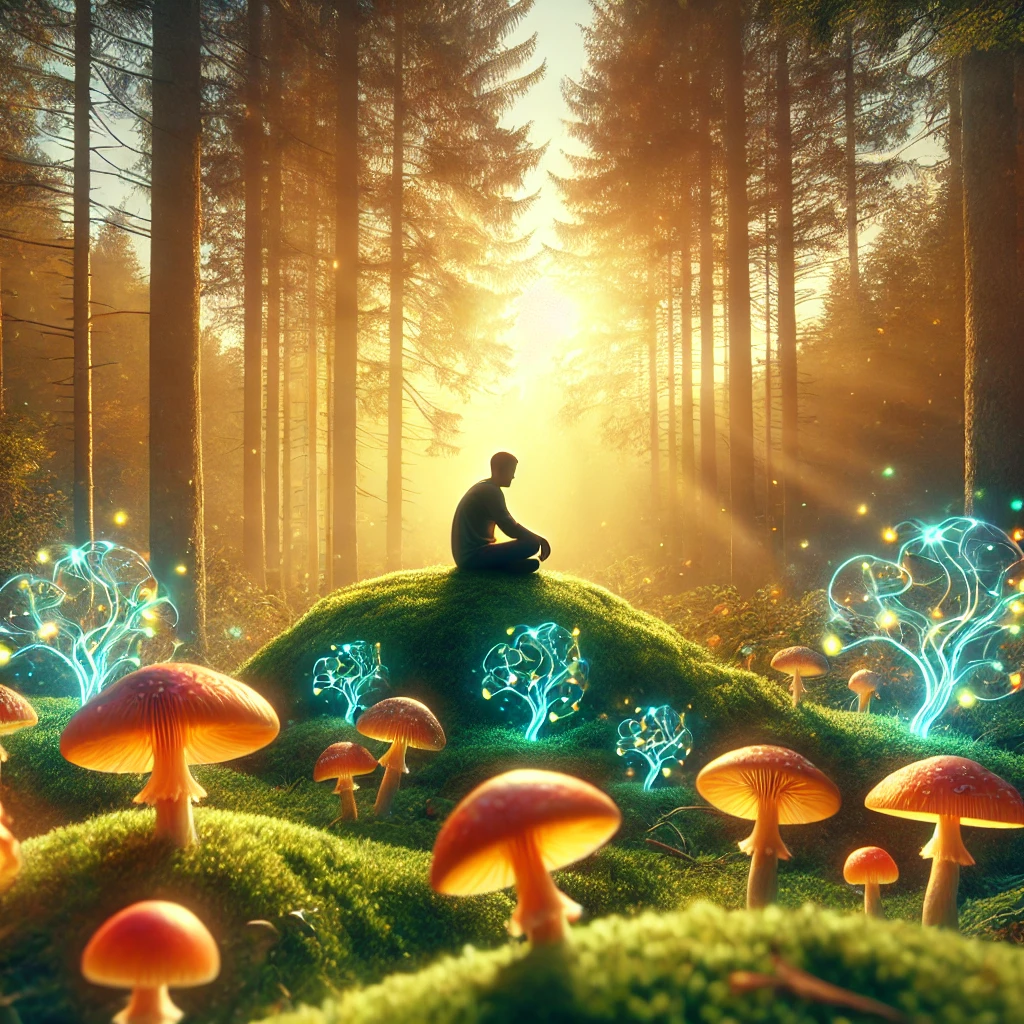In recent years, magic mushrooms, scientifically known as psilocybin mushrooms, have gained attention for their potential to treat depression. Psilocybin for depression has been one of the main reason we at MicrodoseMagic became a company. Knowing millions are affected by depression, we at MicrodoseMagic have been working hard to provide the best quality of shrooms and research. Once dismissed as merely recreational psychedelics, these fungi are now being studied for their profound mental health benefits. With depression rates on the rise globally, many individuals are seeking alternative treatments, including psilocybin-assisted therapy and microdosing. Please be advised that everyone reacts differently to magic mushrooms, so find out what works for you.
In this blog, we’ll explore the science behind psilocybin’s antidepressant effects, recent clinical research, and how microdosing may help individuals manage symptoms of depression.
What Are Magic Mushrooms?
Magic mushrooms contain the psychoactive compound psilocybin, which is converted to psilocin in the body. Psilocin interacts with serotonin receptors in the brain, influencing mood, perception, and cognition. This interaction is believed to be the key mechanism behind the potential antidepressant effects of psilocybin.
There are many species of magic mushrooms, but some of the most potent and commonly studied for their therapeutic effects include:
- Psilocybe cubensis: The most well-known species, often used in clinical trials. Common but amazing for beginners
- Psilocybe azurescens: Known for its high psilocybin content, making it particularly potent. Order now at MicrodoseMagic
- Psilocybe semilanceata: Also called “Liberty Caps,” these mushrooms grow naturally in Canada and have a strong psychedelic effect. We carry these for microdosing capsules as they are super rare to come upon
For more information on specific strains, check out our informative guides on magic mushrooms. The best quality and we stand by it. Any questions, feel free to contact us at MicrodoseMagicCanada@gmail.com
The Science Behind Psilocybin for Depression
Research into psilocybin’s potential to treat depression has accelerated over the past decade. Here’s what the science says:
- Psilocybin and Neuroplasticity: Psilocybin is known to promote neuroplasticity, the brain’s ability to form new connections. This is crucial for individuals with depression, as their neural pathways often become rigid, reinforcing negative thought patterns.
- Serotonin Activation: Psilocybin stimulates serotonin 5-HT2A receptors, which are directly linked to mood regulation. This effect is similar to selective serotonin reuptake inhibitors (SSRIs), but psilocybin may offer more lasting benefits with fewer side effects.
- Emotional Reset: Many individuals report a sense of emotional “reset” or increased emotional connection after psilocybin experiences, which may help break the cycle of depressive thinking.
Clinical Evidence:
- A 2020-Present study published in JAMA Psychiatry found that psilocybin significantly reduced depressive symptoms in participants with major depressive disorder. (Source)
- A 2021-Present trial conducted by Imperial College London revealed that psilocybin was at least as effective as escitalopram, a common SSRI, in treating moderate-to-severe depression. (Source)
Microdosing Magic Mushrooms for Depression
What Is Microdosing?
Microdosing involves consuming sub-perceptual amounts of psilocybin, typically 0.1g to 0.3g of dried mushrooms, on a consistent schedule (e.g., every third day). Unlike full doses, microdosing doesn’t induce hallucinations but may offer mood-enhancing and cognitive benefits.
Potential Benefits of Microdosing for Depression:
- Improved Mood: Many individuals report improved emotional stability and reduced depressive symptoms.
- Enhanced Creativity and Productivity: Microdosing may enhance cognitive flexibility, potentially helping individuals break free from depressive thought loops.
- Reduced Anxiety: Some users experience lower anxiety levels, which often co-occurs with depression.
For those interested in exploring microdosing, visit our Microdosing Magic section to learn more about dosage, schedules, and effects.
For reliable information and access, visit our store to learn more about safe and legal purchasing options.
Potential Risks and Considerations
While psilocybin shows promise for depression, it is not without risks. Potential side effects include:
- Anxiety or Paranoia: In some cases, higher doses can lead to temporary anxiety.
- Unpleasant Trips: Those with underlying mental health conditions may experience challenging psychedelic experiences.
- Drug Interactions: Psilocybin may interact with antidepressants or other medications, making professional guidance essential.
For guidance on preparing for a safe and meaningful psychedelic experience, read our blog on How to Prepare for a Psychedelic Trip.
Conclusion: A Promising Future for Psilocybin Therapy
The growing body of research on magic mushrooms and depression is changing the landscape of mental health treatment. With evidence-backed benefits, psilocybin-assisted therapy and microdosing are emerging as promising alternatives to traditional antidepressants. However, as with any treatment, it is essential to approach it responsibly and consult with professionals when necessary.
For more insights on magic mushrooms, microdosing, and their therapeutic potential, explore our blog and stay informed about the latest research and trends.

